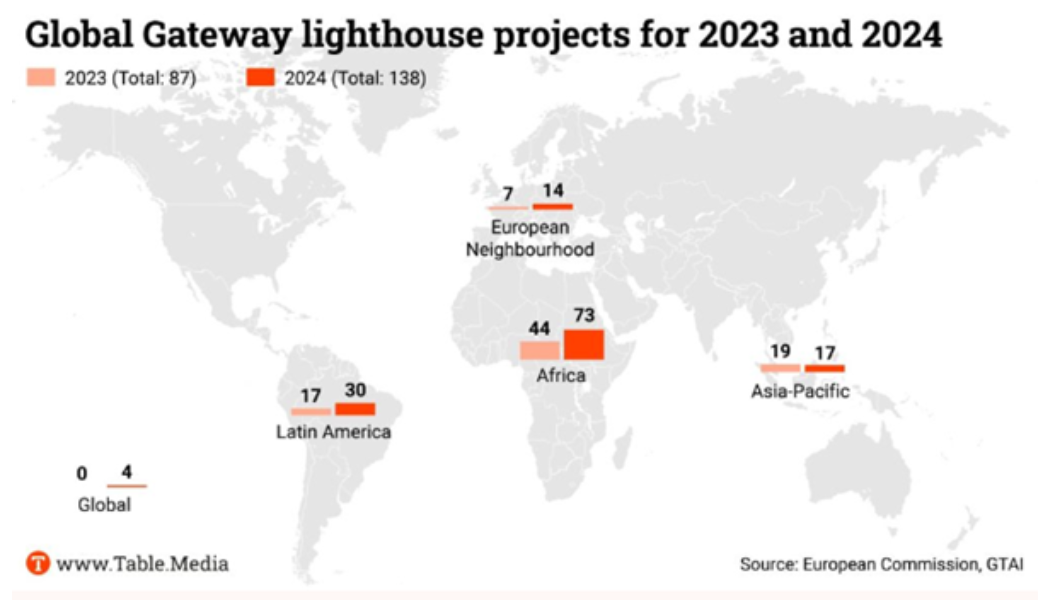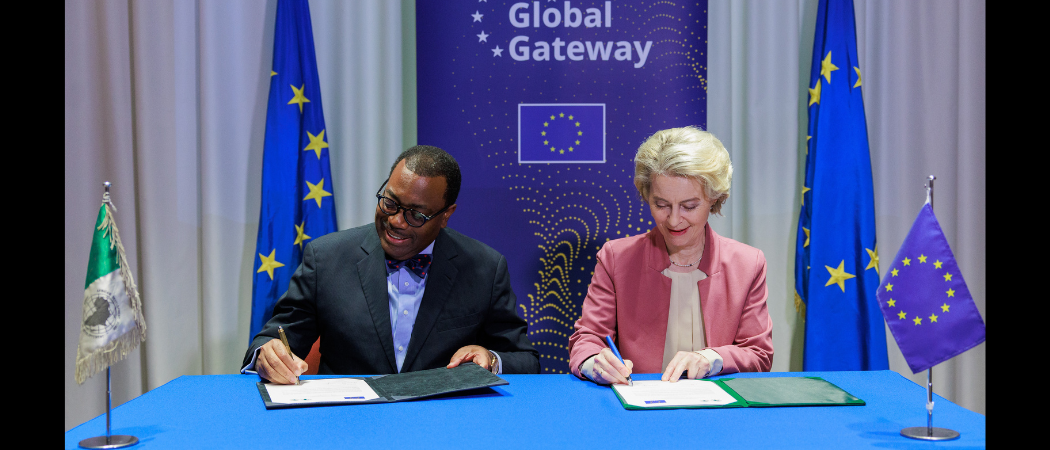Around 150 billion euros are to be invested in Africa by 2027 under the EU initiative. The continent thus remains a clear focus of Global Gateway, as a new GTAI report on the lighthouse projects of the New Silk Road competitor shows
.The European Commission and the African Development Bank have signed a new framework agreement for their existing financial partnership, with Brussels hoping that the deal will give a boost to its Global Gateway infrastructure initiative in Africa.
The Commission’s aim is to drive investment in projects and the EU initiative is considered Brussels’s alternative to China’s New Silk Road.
The partnership was recently renewed at the Italy-Africa summit in Rome. The exact amount of the funding framework was not disclosed, but the Commission said it has “significantly increased over the last two years, now amounting to €972 million in blending operations and guarantees.”
This agreement will enable a series of investments in strategic transport corridors, energy and digital connectivity south of the Sahara. One key joint project is the development of the Lobito Corridor, which will connect the Democratic Republic of Congo and Zambia to the Atlantic Ocean.
The route will run through Angola to the port of Lobito and connect the countries with the world markets from there. It is one of the typical projects competing with China, in this case, for access to raw materials.
The EU plans to invest around €150 billion in Africa between 2021 and 2027 as part of Global Gateway. That is half the planned €300 billion that it will invest around the world over the same period.

Global Gateway keeps focus on investments in Africa • Table.Media

